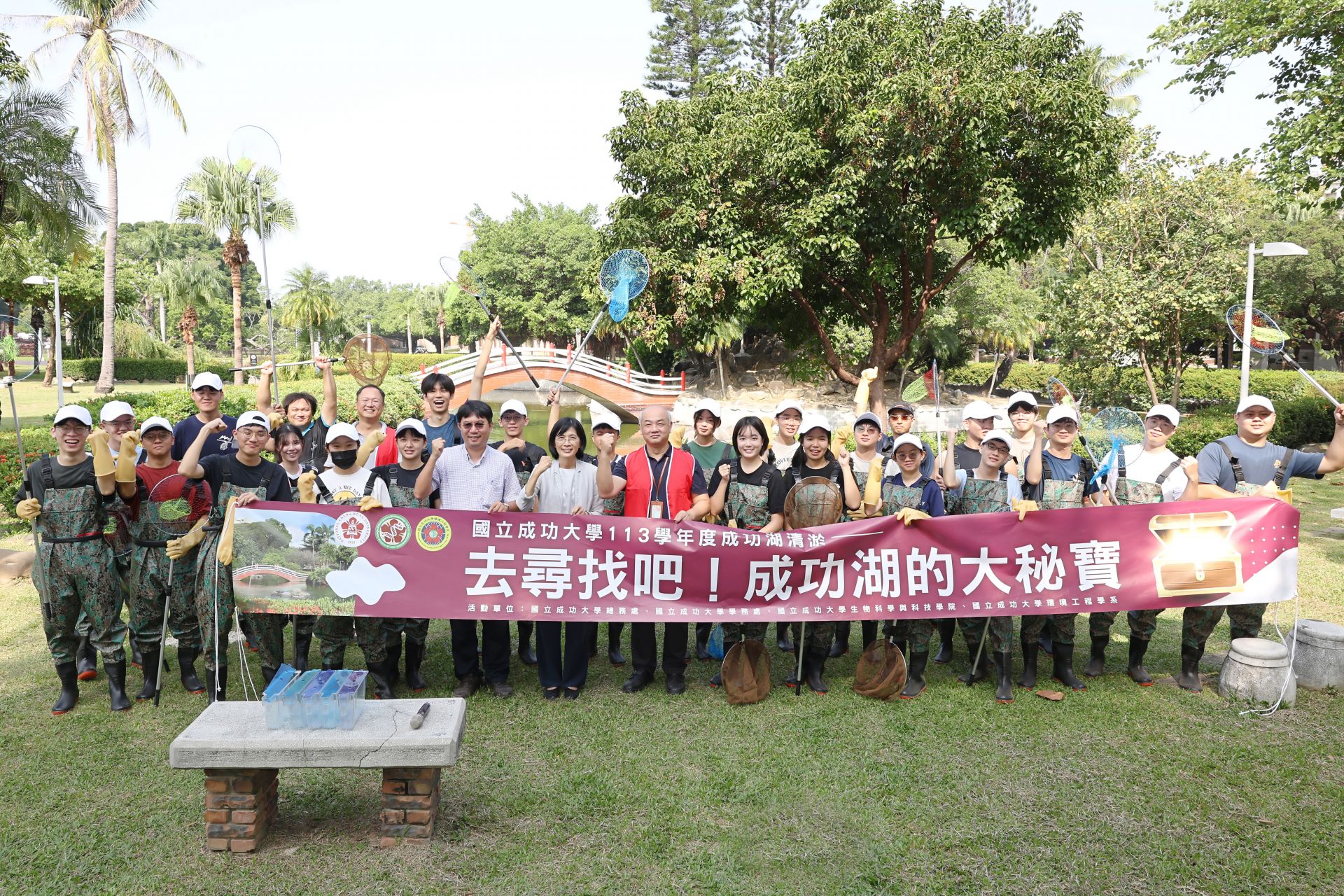NCKU Natural Carbon Sink and Sustainable Health Research Team's crucial reference data for the 2050 Net-Zero Carbon
As the second exhibition of NCKU's Sustainable Interdisciplinary Team Achievements, the Natural Carbon Sink and Sustainable Health Research Team takes the stage. Professor Chih-Da Wu, the project leader and a professor in the Department of Geomatics of NCKU, mentioned that through the project, the team has established collaborative links with central and local authorities. In addition to continuing the analysis of temperature regulation and air pollution purification benefits of green spaces on the NCKU campus, the team plans to extend its research beyond the campus in the upcoming year (2024), applying the "CASA+UAV" algorithm to estimate carbon sequestration in Chiayi and Hualien. The goal is to contribute substantially to achieving the 2050 net-zero carbon emissions target.
NCKU has eight campuses located in the East District of Tainan City, making it an essential urban green space. Moreover, the university's historical campus preserves many wooden structures from the Japanese colonial period and modern wooden buildings, promoting sustainable low-carbon construction materials. Calculating the campus's carbon sequestration and exploring the relationship between the environment and health not only holds significant reference value but also has practical application potential.
The Natural Carbon Sink and Sustainable Health Research Team combines contemporary technologies such as spatial information, unmanned aerial vehicles (UAVs), the Internet of Things (IoT), modern wooden architectural design, and environmental epidemiological analysis. Using the campus as an experimental field, the team proposes specific methods to calculate the natural environment's carbon sequestration capacity. Starting from NCKU students, the team has established a research platform foundation for environmental health literacy and the impact of individual mental health.
During the mid-term of the two-year "Sustainable Interdisciplinary Integrated Project" at National Cheng Kung University, the Natural Carbon Sink and Sustainable Health Research Team has achieved important results and made interesting research discoveries in three sub-projects. Sub-project one successfully developed the campus green space carbon sequestration estimation algorithm "CASA+UAV," which combines unmanned aerial vehicle multispectral image information with NASA models. The team calculated that the total carbon sequestration of NCKU campus green spaces in July 2023 was approximately 27.1 metric tons. Sub-project two has completed the methodology development for estimating the carbon sequestration of campus buildings and assessed that the carbon sequestration of wooden structures in the Kuang-fu, Li-hsing, and Cheng-kung campus areas is approximately 388.3 metric tons. Sub-project three has preliminarily completed a questionnaire survey on climate change, heat-related illnesses, and carbon literacy in four departments: the Department of Architecture, Department of Taiwanese Literature, Department of Civil Engineering, and Department of Environmental Engineering. The team hopes to strengthen educational promotion in the future, aiming to create better health and well-being for all Taiwanese people.
The members of the Natural Carbon Sink and Sustainable Health Research Team come from various departments at NCKU, including Professor Chih-Da Wu from the Department of Geomatics, Associate Dean Tzu-Ping Lin (Distinguished Professor in the Department of Architecture) from the College of Planning and Design, Assistant Professor Yu-Liang Hsu from the Department of Architecture, Professor and Director Pei-Chen Lee from the Institute of Public Health, along with Professor Wan-Yu Liu from the Department of Forestry at National Chung Hsing University and Associate Researcher Candera Wijaya from the Agricultural Engineering Research Center. The team's project is titled "A Multiscale Analysis of the Diverse Benefits of Nature-Based Solutions: Core Analysis of 'Campus Green Spaces,'" and it involves interdisciplinary collaboration with a focus on precision medicine and emerging diseases, energy, carbon neutrality, and green supply chains, regional peace, and partnership development, all contributing to the United Nations Sustainable Development Goals, including Quality Education (SDG4), Industry, Innovation, and Infrastructure (SDG9), Sustainable Cities and Communities (SDG11), Climate Action (SDG13), and Partnerships for the Goals (SDG17).
The NCKU Sustainable Interdisciplinary Project Team Achievements Exhibition is located at the "Illuminate Shalun" exhibition area of the 2024 Taiwan Lantern Festival, facing Guiren 18th Road. The exhibition runs from 1:00 PM to 9:00 PM daily. From March 6 to March 10, the third team to showcase their achievements will be led by Professor Chih-Chung Hsu from the Institute of Data Science and the Department of Statistics, presenting their research on "Multimedia Information Recognition Based on Green Energy Calculation and Sustainable Learning." For more transportation information, please visit the official website of the "2024 Taiwan Lantern Festival in Tainan" or refer to the traffic information at the ICC Tainan and "TainanTransportation" Facebook page.
︱More Information
(News)【2024 台灣燈會】歡慶臺南 400 點亮沙崙展量能 成功大學永續跨域 3 團隊 2 月 24 日起臺南高鐵燈區接力展成果 (2024-02-21)
(News)【2024 台灣燈會-點亮沙崙】成大展出台灣第一套中風教育 VR 課程 期待更加掌握治療黃金期 (2024-02-26)
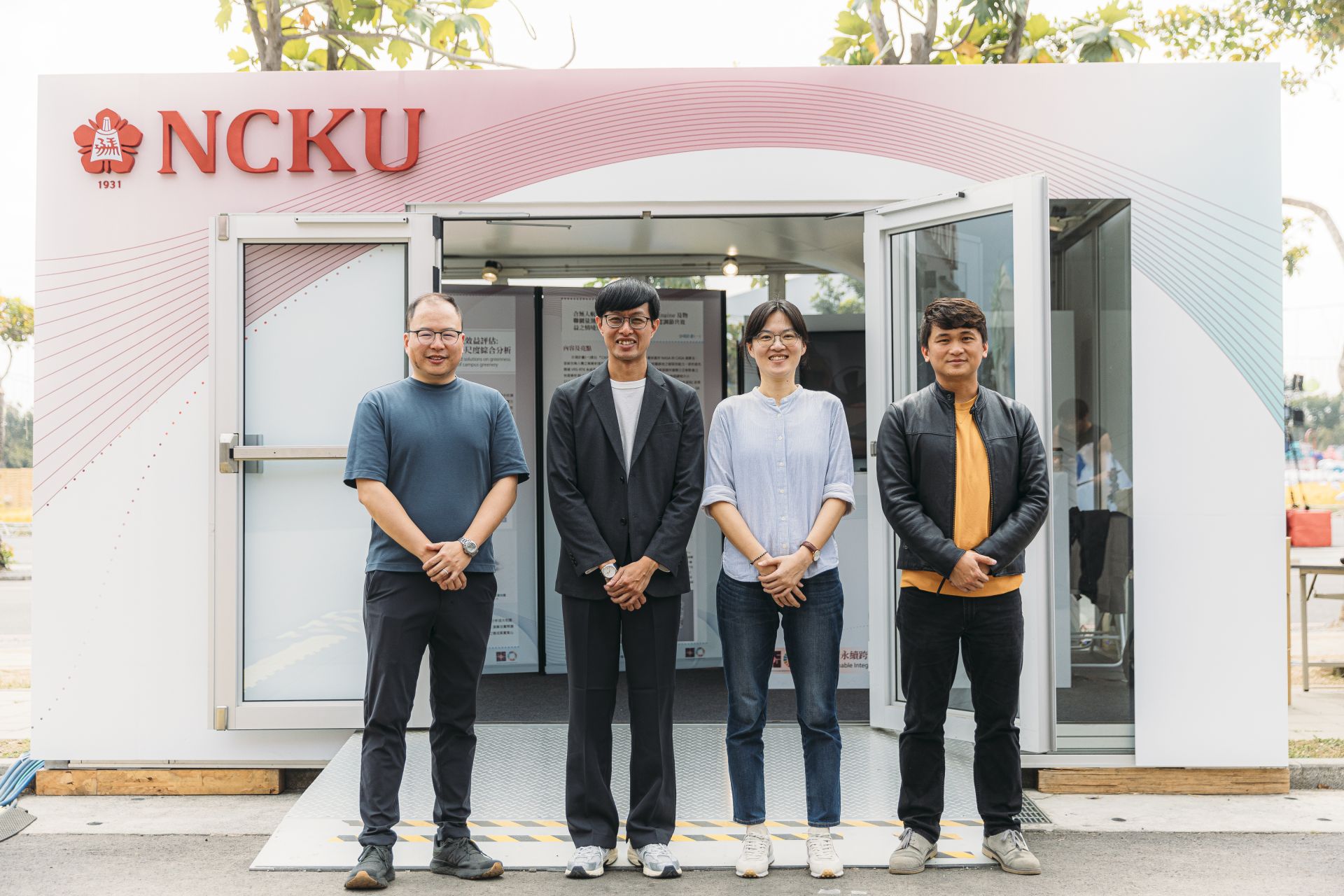
As the second exhibition of NCKU's Sustainable Interdisciplinary Team Achievements, the Natural Carbon Sink and Sustainable Health Research Team takes the stage.
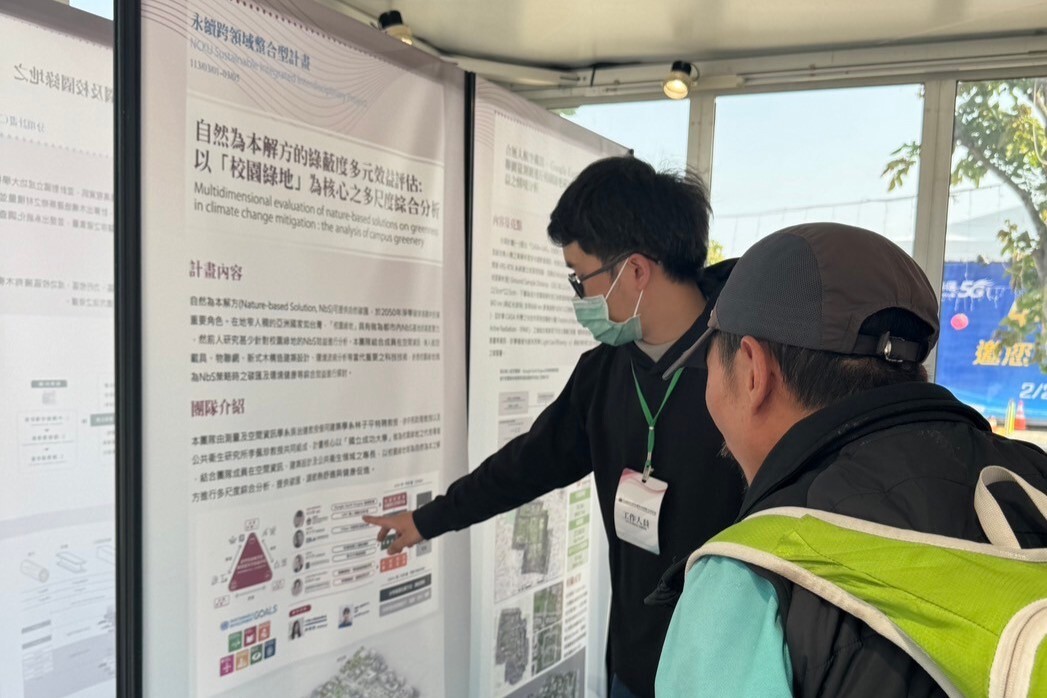
The exhibition showcases the team's calculation of the carbon sequestration capacity of the natural environment using contemporary and vital technological methods. The team aims to enhance visitors' understanding of the immense potential of the natural environment in reducing greenhouse gas emissions and assisting in mitigating climate change. Simultaneously, the exhibition encourages increased awareness of the close relationship between the surrounding environment and personal mental health.
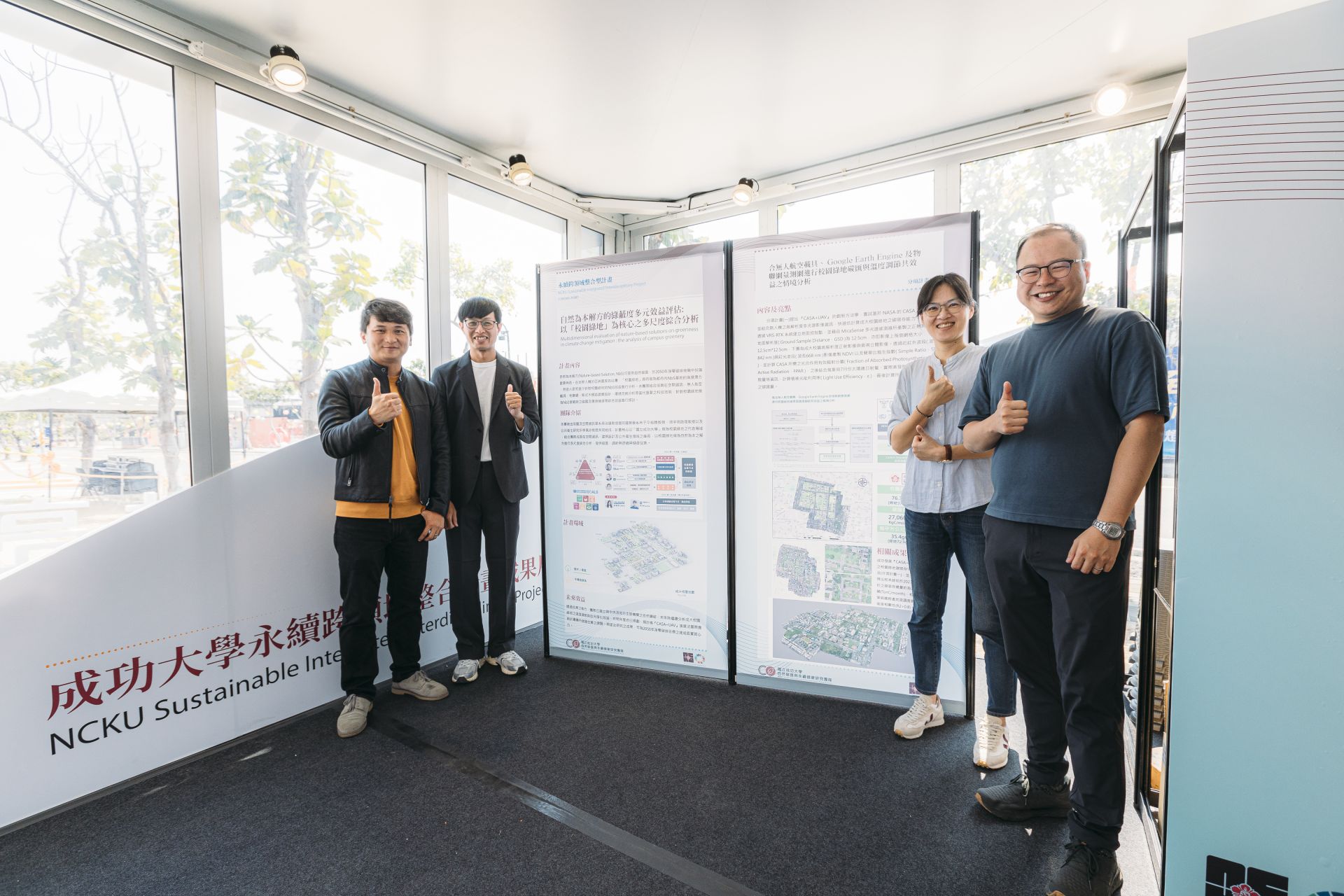
The NCKU Natural Carbon Sink and Sustainable Health Research Team combines various contemporary and crucial technological approaches to contribute essential reference data for the challenge of achieving net-zero carbon emissions by 2050, aligning with the UN's Sustainable Development Goals (SDGs).
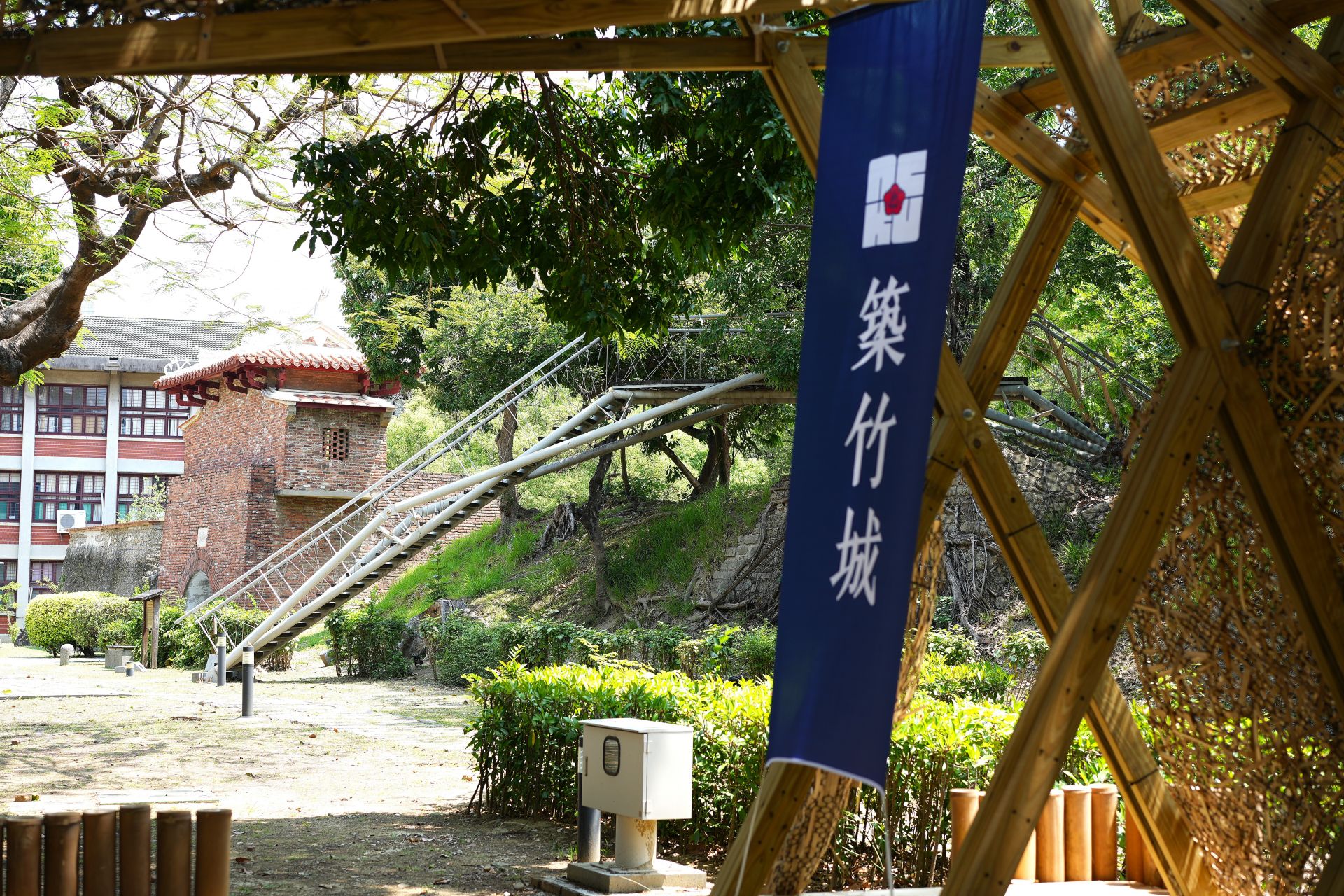
SDG11300 Years of Tainan: NCKU's "Art and Architecture" Exhibition Links History with Contemporary Art
View more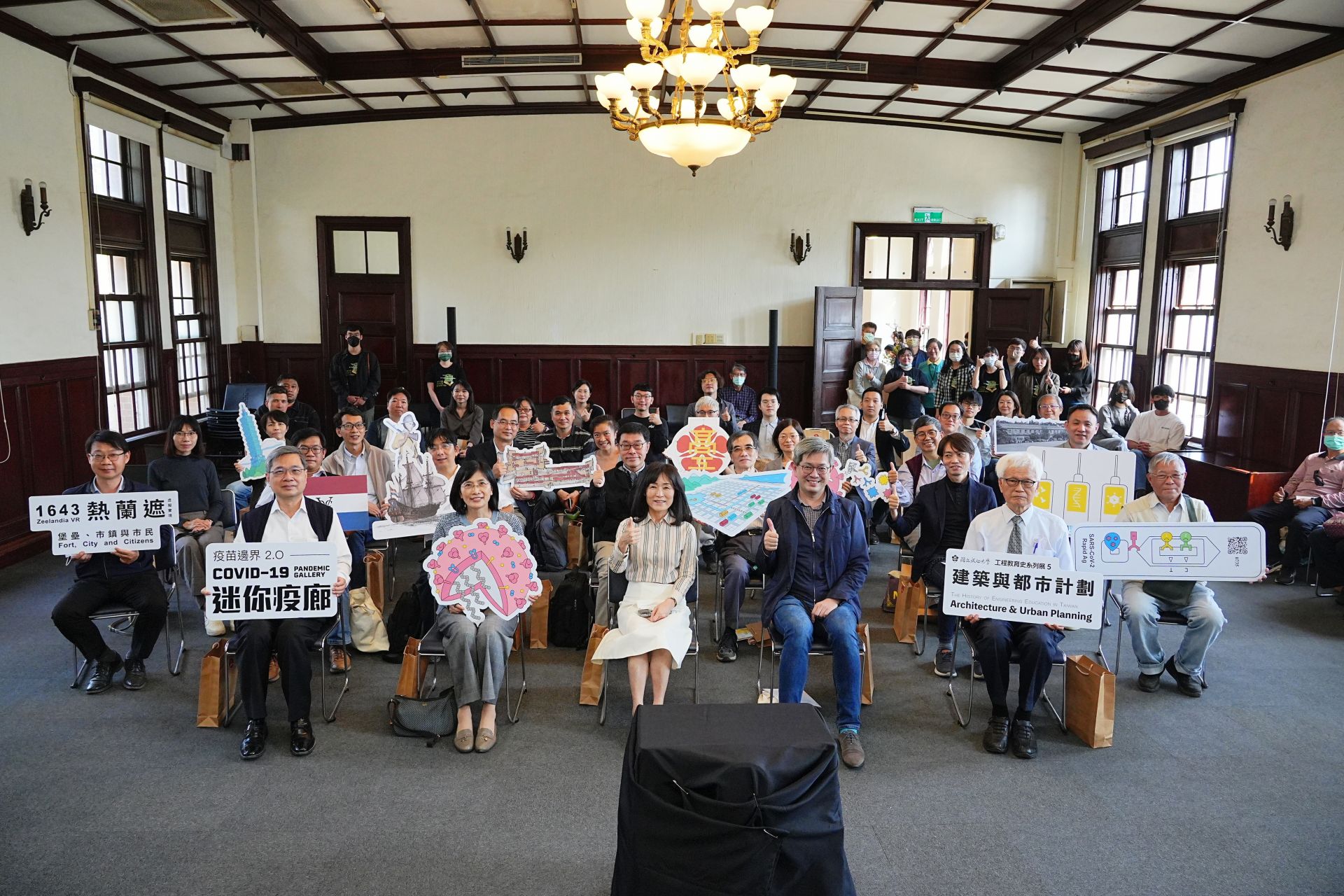
SDG11NCKU Museum Will Soon Be Closed for Maintenance - Come To Visit the 3 Thematic Exhibitions Before April 30
View more